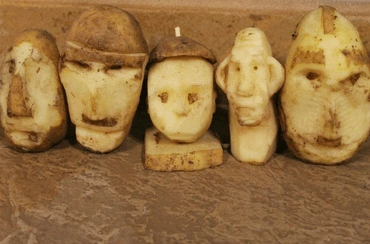1
O Senhor Deus assim me fez ver: e eis aqui um cesto de frutos do verão.
2
E disse: Que vês, Amós? Eu respondi: um cesto de frutos do verão. Então o Senhor me disse: Chegou o fim sobre o meu povo Israel; nunca mais passarei por ele.
3
Mas os cânticos do templo serão gritos de dor naquele dia, diz o Senhor Deus; muitos serão os cadáveres; em todos os lugares serão lançados fora em silêncio.
4
Ouvi isto, vós que pisais os necessitados, e destruís os miseráveis da terra,
5
dizendo: Quando passará a lua nova, para vendermos o grão? e o sábado, para expormos o trigo, diminuindo a medida, e aumentando o preço, e procedendo dolosamente com balanças enganadoras,
6
para comprarmos os pobres por dinheiro, e os necessitados por um par de sapatos, e para vendermos o refugo do trigo?
7
Jurou o Senhor pela glória de Jacó: Certamente nunca me esquecerei de nenhuma das suas obras.
8
Por causa disso não estremecerá a terra? e não chorará todo aquele que nela habita? Certamente se levantará ela toda como o Nilo, e será agitada, e diminuirá como o Nilo do Egito.
9
E sucederá, naquele dia, diz o Senhor Deus, que farei que o sol se ponha ao meio dia, e em pleno dia cobrirei a terra de trevas.
10
E tornarei as vossas festas em luto, e todos os vossos cânticos em lamentações; porei saco sobre todos os lombos, e calva sobre toda cabeça; e farei que isso seja como o luto por um filho único, e o seu fim como dia de amarguras.
11
Eis que vêm os dias, diz o Senhor Deus, em que enviarei fome sobre a terra; não fome de pão, nem sede de água, mas de ouvir as palavras do Senhor.
12
Andarão errantes de mar a mar, e do norte até o oriente; correrão por toda parte, buscando a palavra do Senhor, e não a acharão.
13
Naquele dia as virgens formosas e os mancebos desmaiarão de sede.
14
Os que juram pelo pecado de Samária, dizendo: Pela vida do teu deus, ó Dã; e: Pelo caminho de Berseba; esses mesmos cairão, e não se levantarão mais.







